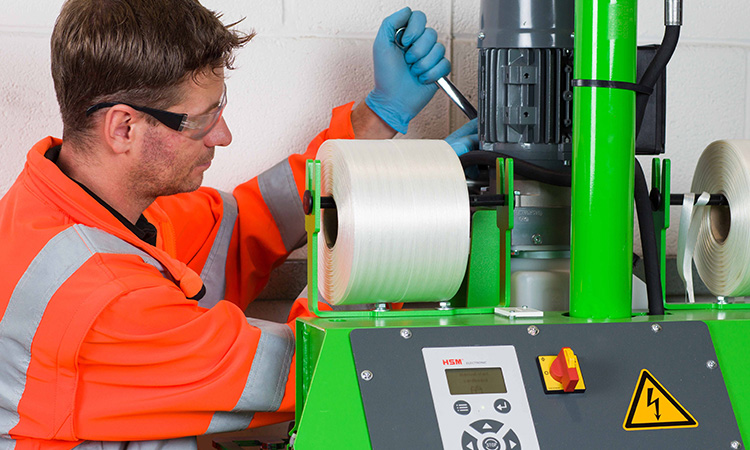Balers vs Compactors: Which is Right for Your Business?

Running a successful business is often all about putting the proper systems or tools in place to make things run as efficiently as possible. Managing the waste and recycling strategy of a business is no different. If your company or organization generates a large volume of waste, organising and disposing of it correctly can be a gargantuan task.
Balers and compactors are a common way to:
● Improves the disposal and recycling of waste to be done in a more efficient manner
● Save money and space used for waste disposal
● Improve recycling and reduce impact on the environment
● Ensure each type of material is disposed of in the correct way
Most people are aware of balers and compactors and the benefits they can offer, but do you know which is best for you?
What’s the Difference Between Balers and Compactors?
Both balers and compactors reduce the volume of waste that needs to be disposed of by using a process of compression. The main difference between the two systems is the type of material that they are used to compress.
Balers:
Are used for crushing recyclable materials such as cardboard, plastic, paper and metal into small bales. This allows for easy pickup and transport of large quantities as the bales can easily be stacked or fit into transport vehicles. Balers come in different sizes and shapes to fit the needs of your business, including vertical balers (which handle small to medium amounts of waste and can be operated by a single person), horizontal balers (which are more suited to larger amounts of waste), multi-chambered balers for multiple smaller waste streams and more.
Balers are typically used for one form of material waste, or for baling similar types of waste together.
The benefits of using a baler include:
● Minimizing time spent breaking down, crushing or otherwise managing materials
● Reducing space used by waste in recycling bins and during transport
● Increasing the volume your business is able to divert from landfill
● Driving site compliance and health & safety
● The possibility to generate revenue
Compactors:
Compactors are more commonly used in large buildings or premises when significant amounts of waste are being generated. The system will compress large amounts of waste into an easy to transport container, which can then be replaced with an empty container to begin the process again.
Unlike balers, compactors typically do not focus on one type of material or require waste to be sorted, allowing them to compact all forms of waste. This makes them more suitable for non recyclable or more robust recyclable materials.
Compactors exist in a wide range of sizes to suit all requirements including both static compactors, portable compactors, and compactors designed for use with bins or bags.
Benefits of compactors include:
● Significantly reducing high costs associated with disposal, transportation and collection
● Reducing the volume and freeing up valuable space on site
● Making waste management and collections easier for employees
● Driving site compliance and health & safety
● Improve recycling and reduce impact on the environment
Which One is Best for My Business?
The choice depends on which materials your business tends to generate the most of, as well as your sustainability goals, and of course the volume of waste.
If the majority of your waste is recyclable, and you have a priority to recycle more of your waste, then a baler is a perfect way to easily recycle more while spending less.
For larger businesses that create large amounts of (not necessarily recyclable) waste, a compactor will make the job of waste disposal easier while also saving you money on collection. This could result you reducing your waste transport costs by up to 80%.
How can phs Wastekit Help?
With over 35 years’ experience supplying the best compactors, balers and other waste handling equipment across the UK, nobody has more experience at waste compacting and disposal than us.